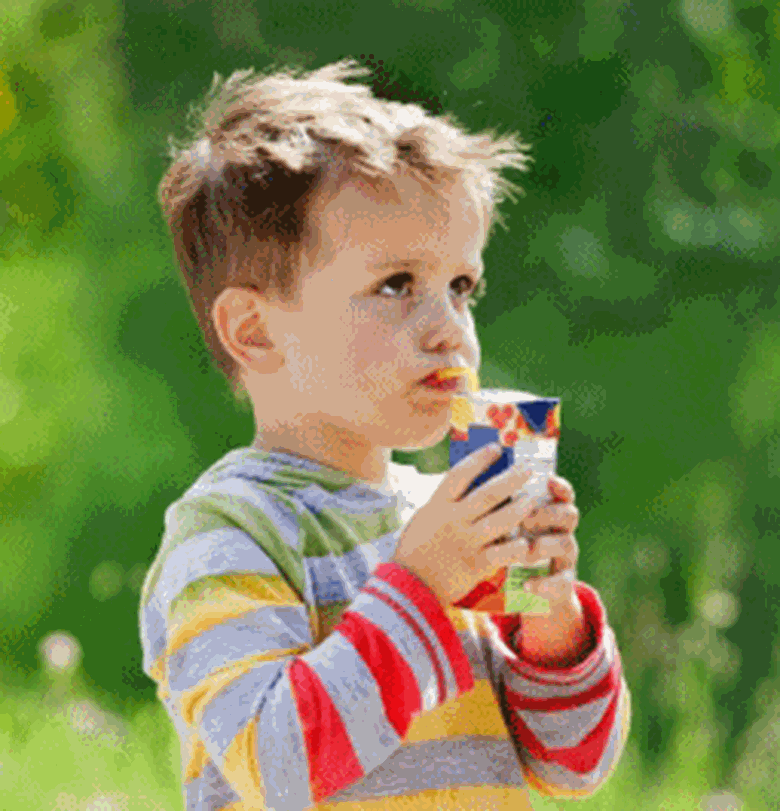Children's soft drinks advertising makes 'false health claims'
Katy Morton
Friday, September 16, 2011
Parents are being misled by soft drinks marketing that falsely claims many drinks that are targeted at children contain fruit and are healthy when they are not, according to research.

The Children’s Food Campaign conducted a survey of soft drink marketing campaigns that appeal to children and their parent, including Fruit Shoot Hydro, Vimto and Ribena , found that all the products make reference to fruit despite some containing just five per cent of fruit juice or none at all.
One of the worst offenders, according to the research, is Fruit Shoot’s Hydro drink, which implies it contains fruit when it does not.
It also wrongly claims that squash and fruit juice are better at hydrating children, when this contradicts public health advice and encourages parents to give squash and juice to their children rather than water.
The report’s authors, argue that consumers are falsely led to believe that soft-drinks with packaging covered in fruit images contain significant amounts of fruit.
The underlying issue, they claim, is that there is no statutory minimum amount of fruit juice that fruit juice drinks must contain, with food labelling regulation only requiring manufacturers to list the percentage of fruit juice in the product.
Most commonly, fruit juice drinks are defined as containing between five and 25 per cent of fruit juice.
Another tactic used by Ribena, says the report, is to give its products a healthy image by emphasising the drink’s vitamin C content. However, its claims that a serving provides 100 per cent of the recommended daily allowance of vitamin C does not take into account that the drink is a squash and is diluted with water. Once diluted it provides only 5 per cent of the recommended daily allowance of Vitamin C.
The added sugar content of soft drinks is also not mentioned in marketing campaigns, even though, in the case of Ribena and Still Vimto, there is more added sugar than fruit. According to the research, consumers have to read the small print in the ingredients list to find this information, even then none of the products state exactly how much sugar is added.
To protect children from the marketing of unhealthy food and drink products, the Children’s Food Campaign recommends that the Government introduce a 9pm watershed for the advertisement of unhealthy foods and drink products. They also suggest that other marketing media, such as outdoor and online advertising be more robustly regulated.
Currently, advertisements for ‘less healthy’ food and drink products are not allowed to be screened during children’s television programming, however the Children’s Food Campaign argues that this fails to protect children during the majority of their television viewing, which does not occur during these periods.
The report also calls for the Government to instruct media regulator Ofcom to ban the advertising of artificially sweetened food and drink products during children’s programming.
At the moment, products that have a high sugar content and a low fruit content are not permitted to be marketed during children’s television programming, however products that contain sweetener instead of sugar can, such as Fruit Shoot Hydro, despite research indicating that artificial sweeteners may pose health risks and contribute to obesity.
In a statement the British Soft Drinks Association said, ‘This report is unfair and mistaken. It is based on partial and incomplete understanding of the facts.
‘The label of each drink carries the ingredients list, including the juice content, and nutritional information. The Guideline Daily Amount scheme ensures that the most important nutritional information is visible at a glance on the front of the pack.
‘Advertising and labelling are covered by strict regulation and independent control, to which soft drinks companies are subject.’
They added, ‘Soft drinks, like all food and drink, should be consumed as part of a balanced diet.’
- Another report by the Children’s Food Campaign, published on Wednesday, reveals that 33 national food companies have failed to commit to one or more pledges set out by the government through its Responsibility Deal.
Companies that signed up to the deal, launched in March, committed to a series of pledges to improve public health.
The report, The Irresponsibility Deal?, lists 13 well-known companies including Birds Eye, Budgens and Nandos, which have failed to sign up to any health pledges at all.




